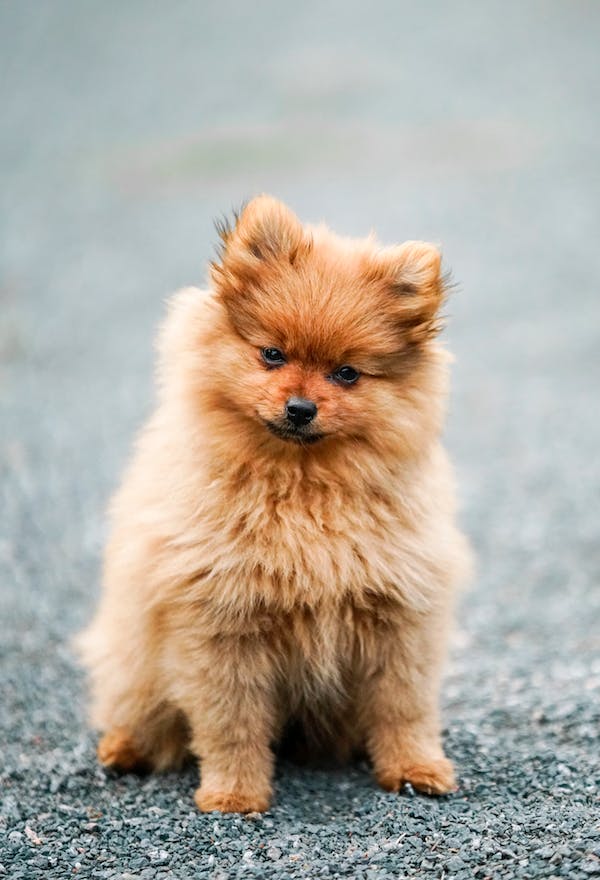
When you bring home a new puppy, you are probably excited to watch them grow and develop. But how long will this growth last? When will your puppy stop growing?
The answer to this question depends on a few factors, including the breed of your dog, their nutrition, and their overall health. In general, however, most dogs stop growing between 6 and 24 months of age.
Factors Affecting Growth
There are a few factors that can affect how long a dog takes to grow. These include:
- Breed: The breed of a dog is the biggest factor in determining when they will stop growing. Smaller breeds tend to stop growing at a younger age than larger breeds. For example, a Chihuahua may stop growing at around 6 months old, while a Great Dane may not stop growing until they are 18 months old.
- Nutrition: A well-nourished puppy will grow at a healthy rate. However, overfeeding can lead to obesity, which can stunt growth. It is important to feed your puppy a balanced diet that is appropriate for their age and breed.
- Health: A sick or injured puppy may not grow as quickly as a healthy puppy. If your puppy is not growing at a normal rate, it is important to take them to the veterinarian to rule out any health problems.
- Sex: Male dogs tend to be slightly larger than female dogs, and they may take a little longer to reach their full size.
Signs Your Dog Is Growing Up

There are a few signs that your dog is growing up. These include:
- Their weight will start to stabilize.
- Their body will start to fill out.
- Their bones will harden.
- Their teeth will start to fall out and be replaced by permanent teeth.
- Their energy levels may start to decrease.
What to Expect After Your Dog Stops Growing
Once your dog stops growing, you may notice a few changes in their behavior. They may start to calm down and become more sedentary. They may also start to lose their puppy teeth and get their permanent teeth.
It is important to continue to provide your dog with a healthy diet and plenty of exercise even after they stop growing. This will help them maintain a healthy weight and stay active.
Consulting With Your Veterinarian
If you are unsure when your dog will stop growing, you can always consult with your veterinarian. They can assess your dog’s growth and development and give you a more accurate estimate of their adult size.
Conclusion
The age at which dogs stop growing varies depending on their breed, nutrition, and overall health. In general, however, most dogs stop growing between 6 and 24 months of age. There are a few signs that your dog is growing up, such as their weight stabilizing, their body filling out, and their bones hardening. Once your dog stops growing, you may notice a few changes in their behavior, such as them becoming more calm and sedentary. It is important to continue to provide your dog with a healthy diet and plenty of exercise even after they stop growing.
I hope this blog post has been helpful. If you have any further questions, please feel free to leave a comment below.
Frequently Asked Questions
Q: When do small dogs stop growing?
A: Small dogs typically stop growing at around 6 to 8 months of age. However, there is some variation within this range, and some small dogs may stop growing earlier or later.
Q: When do medium dogs stop growing?
A: Medium dogs typically stop growing at around 12 months of age. However, there is some variation within this range, and some medium dogs may stop growing earlier or later.
Q: When do large dogs stop growing?
A: Large dogs typically stop growing at around 18 months of age. However, there is some variation within this range, and some large dogs may stop growing earlier or later.
Q: When do giant dogs stop growing?
A: Giant dogs typically stop growing at around 24 months of age. However, there is some variation within this range, and some giant dogs may stop growing earlier or later.
Q: What are the signs that my dog is growing up?
A: There are a few signs that your dog is growing up. These include:
- Their weight will start to stabilize.
- Their body will start to fill out.
- Their bones will harden.
- Their teeth will start to fall out and be replaced by permanent teeth.
- Their energy levels may start to decrease.
Q: What should I expect after my dog stops growing?
A: Once your dog stops growing, you may notice a few changes in their behavior. They may start to calm down and become more sedentary. They may also start to lose their puppy teeth and get their permanent teeth.
It is important to continue to provide your dog with a healthy diet and plenty of exercise even after they stop growing. This will help them maintain a healthy weight and stay active.
Q: How can I make sure my dog is getting the right nutrition?
A: It is important to feed your dog a balanced diet that is appropriate for their age and breed. You can talk to your veterinarian about the best diet for your dog.
Q: What are some common health problems that can affect a dog’s growth?
A: Some common health problems that can affect a dog’s growth include:
- Nutritional deficiencies: A dog that is not getting the nutrients they need may not grow as quickly or as well as a dog that is getting a balanced diet.
- Disease: A sick or injured dog may not grow as quickly as a healthy dog.
- Genetics: Some breeds of dogs are simply naturally larger or smaller than others.
Q: When should I take my dog to the veterinarian if I am concerned about their growth?
A: If you are concerned about your dog’s growth, you should take them to the veterinarian. The veterinarian can assess your dog’s growth and development and give you a more accurate estimate of their adult size. They can also rule out any underlying health problems that may be affecting their growth.
I hope this FAQ section has been helpful. If you have any further questions, please feel free to leave a comment below.